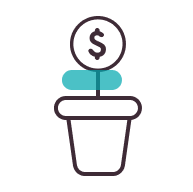Key takeaways:
- While business ownership can lead to more freedom, it also often comes with trade-offs like long hours, financial risk, and short-term sacrifices.
- Choosing the right business model is key to achieving your version of freedom, whether it’s flexibility, financial growth, or independence.
- Learn from other entrepreneurs who achieved freedom in their businesses, and get strategies to help you succeed.
Freedom was a key reason why serial entrepreneur Susan Nilon started her latest business, The Stress-Free CEO, a consulting firm for female entrepreneurs. “I wanted control over my time, income, and the impact of my work,” she says. “To me, freedom means financial stability, a flexible schedule, and the ability to create a business that aligns with my values.”
Her previous businesses included an interior design and remodeling firm as well as a radio station. Both businesses involved a number of employees, long hours, and lots of stress.
“My goal (this time) was to build something sustainable and fulfilling without the constant stress of traditional business models,” she says.
What Does Freedom Mean to You?
Freedom means something different to each small business owner. For some, it’s the ability to pick up their kids from school without asking permission. For others, it’s the potential to earn unlimited income rather than being capped by a salary. And for many, it’s about building something meaningful that belongs entirely to them.
Melinda Thomas is the owner of Charming Maids, a residential, commercial, and vacation property cleaning company. Starting her own business, while challenging, gave her a degree of freedom her corporate job did not, including “the ability to create my own schedule so I can be more present with family, have control over my own life, and do things boldly that I know are ethically correct,” she says. “Freedom to me is when work does not feel like a job. I love what I do!”
A survey of entrepreneurs by GoDaddy found that half of respondents (49.2%) said that “freedom to pursue your own passions and interests” indicates achieving the American Dream, and 39% viewed “being your own boss” as that indicator.
Before you take the leap into business ownership, you need to get clear about what freedom means to you.
Think about these questions:
Are you seeking time freedom?
The ability to work when you choose sounds enticing, but the reality is that most new businesses demand more time, not less, especially in the first few years.
“Freedom was definitely a goal when I started my business,” says Connie Terry, owner of Connie Terry Marketing, which offers strategy plans for Pinterest and blog traffic. “I wanted financial freedom and time freedom,” she says. “I didn’t know when I started that my dad would be diagnosed with cancer and I would need flexibility in my schedule.”
But it wasn’t all smooth sailing.
“In the beginning, and still some days, the hours are long and progress isn’t as fast as people make it seem,” Terry warns. “There is no instant button.”
Is financial freedom your goal?
According to IRS data, just over 1 in 4 (28%) of all individual income tax returns (42.3 million returns) in 2017 had some small business income and/or losses. That same year, the Adjusted Gross Income (AGI) for returns with small businesses was $122,414 vs. $72,006 average AGI for all returns.
While business ownership can create significant wealth, it rarely happens quickly. While there are some cases of overnight success, most businesses require at least a few years to match the owner’s previous salary. Achieving financial freedom through entrepreneurship typically requires a long-term mindset and the willingness to reinvest early profits.
Do you want decision-making freedom?
Being your own boss means having control over your business strategy, company culture, and daily operations. However, unless you have a business partner, this comes with complete responsibility for every outcome.
“To me, freedom means the ability to align my work with my values, choose the clients I serve, and design a career that supports both my professional ambitions and personal life,” says Christina Rea, Esq., CEO, RayCor Consulting, which specializes in providing tailored compliance solutions to fintech and crypto companies. “By starting my business, I sought financial independence, creative freedom to innovate, and the flexibility to balance my life on my own terms,” she says.
You have the opportunity to build a specific type of freedom over time, but only if you’re intentional about it from the start. The business model you choose, the systems you put in place, and the team you build should all align with your personal definition of freedom.
“Freedom in business isn’t just about breaking away from traditional work structures,” says Nilon. “True freedom comes from being intentional, adaptable, and focused on long-term sustainability rather than just short-term gains.”
There’s no right or wrong answer about what freedom means to you. And it may evolve over time. The key is being honest with yourself about your priorities and understanding that different types of businesses create different types of freedom.
Let’s explore how to match your goals for freedom with the right business approach.
Finding Freedom: Choosing Tradeoffs
Success is rarely about having it all – it’s about choosing what matters most to you.
Thomas made some major changes to focus on her business. “I simplified my life,” she said. “I began traveling less, downsized my home, and even considered downgrading my vehicle,” she explains. “I simplified my temporary ‘ideal life’ for a permanent and impactful future.”
Let’s walk through how to evaluate the tradeoffs that come with business ownership. Start by identifying what you absolutely must-haves for your business, such as:
Family time
If maintaining dinner with your family four nights a week or making time for your kids after-school sports is essential, you’ll need a business model that doesn’t require evening hours. A consulting business might work; a restaurant probably won’t.
Health and wellness
Some entrepreneurs want time for workouts or to cook healthy meals at home. Others need flexibility for medical appointments. Your business structure and how you set up your workday must accommodate your non-negotiable health needs.
Financial security
Be brutally honest about your minimum financial requirements. Remember that, as the boss, you’re responsible for taxes (including the half of FICA taxes that employers normally pay), plus health insurance (unless you are covered by a family member) and you won’t have paid vacation. Try to set aside enough money to cover your expenses for at least 2-3 months. And when you’re creating your business plan, calculate the minimum you need and then add at least 25% for unexpected costs.
Weighing Temporary vs. Permanent Sacrifices
“You will want to quit,” Terry warns. “Especially in the beginning, the hours are long and, oh my goodness, there is so much noise out there.”
Successful business owners recognize the difference between short-term sacrifices and long-term lifestyle changes. Consider:
Short-Term Sacrifices (First 1-3 Years):
- Working longer hours than at your current job
- Less disposable income
- Lack of employer-paid vacation time
- More stress and uncertainty
Long-Term Lifestyle Changes:
- Taking ultimate responsibility for income generation
- Managing others instead of being managed
- Constant learning and adaptation
- Making high-stakes decisions
- Being the final decision-maker
“I have learned that working for yourself does not make the workload any easier,” warns Thomas. “It will put you to the test and sometimes you may question if you have made the right choice due to any inconvenience that occurs because this is your sole income.”
“But you will quickly build confidence and trust in yourself that you have never experienced before,” she adds. “You never stop being a student. There are always areas to improve.”
Aligning Business Models with Life Goals
As you think about what business to start, here are several business models to consider:
Service-Based Businesses:
- Schedule flexibility
- Lower startup costs
- Faster path to profitability
- Higher dependence on your personal time
Product-Based Businesses:
- More scalable long-term
- Requires more upfront capital
- Often must be available during business hours
- Can eventually be less dependent on your time
Online Businesses:
- Location independence
- Potential for building ongoing revenue
- Some degree of technical skills required
- Highly competitive market
- Often takes time to build income
The Reality Check: Are You Ready?
Write down your ideal weekly schedule—including work hours, family time, exercise, hobbies, and sleep—and ask yourself:
- What could or would you give up—or not give up—in year one to build this future?
- Which relationships must be maintained during the business-building phase?
- How long can you sustain your planned sacrifices?
- What’s your backup plan if making money takes longer than expected?
“One lesson I’ve learned in building The Stress-Free CEO is that freedom doesn’t mean doing everything alone,” says Nilon. “It’s about creating systems and support that allow you to focus on what truly matters.
“Early on, I tried to manage every detail myself, thinking that was the price of independence, but it quickly led to burnout. I’ve since realized that true freedom comes from setting boundaries, outsourcing when needed, and being intentional about how I spend my time so my business serves me, not the other way around.”
While you may have to make sacrifices for a while, your goal should be to make strategic trade-offs that lead to your version of freedom over time.
If you aren’t sure you are ready to take the plunge, consider starting your own company as a side hustle or by freelancing part-time while you keep your day job. This can lower your risk, while giving you time to build your skills along with a client base.
Is Starting a Business the Right Move for the Life That You Want?
Starting a business is not the only path to freedom. Let’s examine whether business ownership aligns with your vision for your life.
Business ownership tends to work best for people who:
Want to build long-term wealth
Building a valuable business asset over 5-10 years can create more wealth than decades of salary increases.
Thrive on problem-solving
If constant problem-solving energizes rather than drains you, that’s a positive sign. Making your own decisions can be energizing or overwhelming at times.
Don’t mind hard work
Self-employment often requires an investment of time and energy, especially in the beginning. Work-life balance may be somewhat elusive until you get your systems in place.
Have a clear idea of their market
You don’t need a groundbreaking business idea to succeed, but you must identify a market for your offering.
Thomas started her cleaning business after recognizing a market need. “My goal in the beginning was to provide a necessary service for a demographic that I was heavily involved in. I saw the need for a cleaning company that offered more than just a service and I wanted a staff that felt like family,” she explains.
She says it “wasn’t until work began feeling like fun rather than a job that I realized this was the freedom I needed.”
Making Your Decision
If you are serious about starting your own business, think through the following questions:
- Time Horizon: How long can you work without stable income?
- Risk Tolerance: How well do you handle uncertainty?
- Financial Resources: Do you have adequate savings and backup plans?
- Support System: Is your immediate family emotionally and financially supportive?
- Market Validation: Have you tested your business concept?
- Willingness to Learn New Skills: Are you willing to spend time learning new skills, whether that’s social media marketing or basic bookkeeping?
“Don’t give up,” says Terry. “If you have a strong desire to have your own business and have freedom whether financially or time wise, it can be done. There will be sacrifices and exhaustion but if you don’t give up, you will see progress.”
“I have achieved internal peace,” says Thomas. “Though every day is not easy, I wake up knowing I am in control of my career and that is an indescribable feeling. I love my job.”
Your Lower-Risk Path to Starting a Business: A Step-by-Step Checklist
Here’s a checklist you can use to get started. Not everyone will be able to follow these steps exactly; adapt for your situation.
Before You Quit Your Day Job
☐ Test your business concept while employed
- Start as a side business if possible
- Set specific revenue targets before going full-time
- Build up at least 3-6 months of living expenses in savings
☐ Validate your market
- Talk to at least 10 or more potential customers
- Create a minimum viable product or service
- Get 3-5 paying customers before scaling
- Document all customer feedback
Set Up Your Business Foundation
☐ Follow requirements for a new business
- Choose a business name
- Get business licenses as required
- Start with the simplest appropriate structure (sole proprietorship or LLCs are popular)
Separate business and personal finances
- Get a business checking account
- Set up an emergency fund for the business
- Check your personal credit
- Establish business credit
- Get a business credit card for expenses
- Look into options for startup financing
Create a Smart Growth Strategy
☐ Start with minimal overhead
- Use low-cost or free tools initially
- Work from home if possible
- Outsource instead of hiring
- Buy equipment cautiously
Build recurring revenue
- Focus on getting repeat customers
- Create subscription or retainer options, if appropriate
- Build systems to ensure consistent cash flow
Protect Yourself
☐ Protect your personal and business finances
- Secure basic business insurance
- Use written contracts with all clients
- Sign a partnership agreement if you have business partners
- Get a separate business phone number and email
☐ Measure Progress
☐ Set clear milestones
- Monthly revenue targets
- Customer acquisition goals
- Profitability benchmarks
- Break even to replace current income
☐ Track these metrics monthly from day one:
- Cash flow
- Customer acquisition cost
- Monthly recurring revenue
- Operating expenses
- Personal runway (months of savings left)
This article was originally written on February 3, 2025 and updated on February 10, 2025.




Have at it! We'd love to hear from you and encourage a lively discussion among our users. Please help us keep our site clean and protect yourself. Refrain from posting overtly promotional content, and avoid disclosing personal information such as bank account or phone numbers.
Reviews Disclosure: The responses below are not provided or commissioned by the credit card, financing and service companies that appear on this site. Responses have not been reviewed, approved or otherwise endorsed by the credit card, financing and service companies and it is not their responsibility to ensure all posts and/or questions are answered.